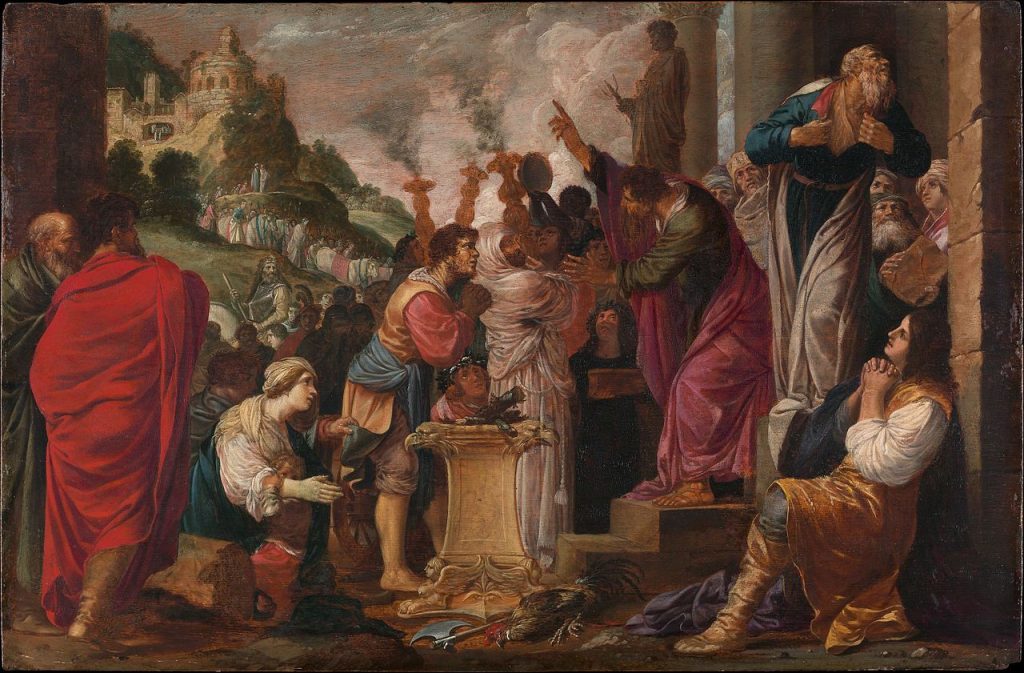Acts 14:21–27 / Ps. 145:8–13 / Rev. 21:1–5 / Jn. 13:31–35
By God’s goodness and compassion, the doors of his kingdom have been opened to all who have faith, Jew or Gentile.
That’s the good news Paul and Barnabas proclaim in today’s First Reading. With the coming of the Church — the new Jerusalem John sees in today’s Second Reading — God is “making all things new.”
In his Church, the “old order” of death is passing away and God for all time is making his dwelling with the human race, so that all peoples “will be His people and God Himself will always be with them.”
In this the promises made through his prophets are accomplished (see Ezekiel 37:27; Isaiah 25:8; 35:10).
The Church is “the kingdom for all ages” that we sing of in today’s Psalm. That’s why we see the apostles, under the guidance of the Spirit, ordaining “presbyters” or priests (see 1 Timothy 4:14; Titus 1:5).
Anointed priests and bishops will be the apostles’ successors, ensuring that the Church’s “dominion endures through all generations” (see Philippians 1:1, note that the New American Bible translates “episcopois,” the Greek word for bishops, as “overseers”).
Until the end of time, the Church will declare to the world God’s mighty deeds, blessing his holy name and giving him thanks, singing of the glories of his kingdom.
In his Church, we know ourselves as his “faithful ones,” as those Jesus calls “My little children” in today’s Gospel. We live by the new law, the “new commandment” that he gave in his final hours.
The love he commands of us is no human love but a supernatural love. We love one another as Jesus loved us in suffering and dying for us. We love in imitation of his love.
This kind of love is only made possible by the Spirit poured into our hearts at baptism (see Romans 5:5), renewed in the sacrifice His priests offer in every Mass.
By our love we glorify the Father. And by our love all peoples will know that we are his people, that he is our God.

